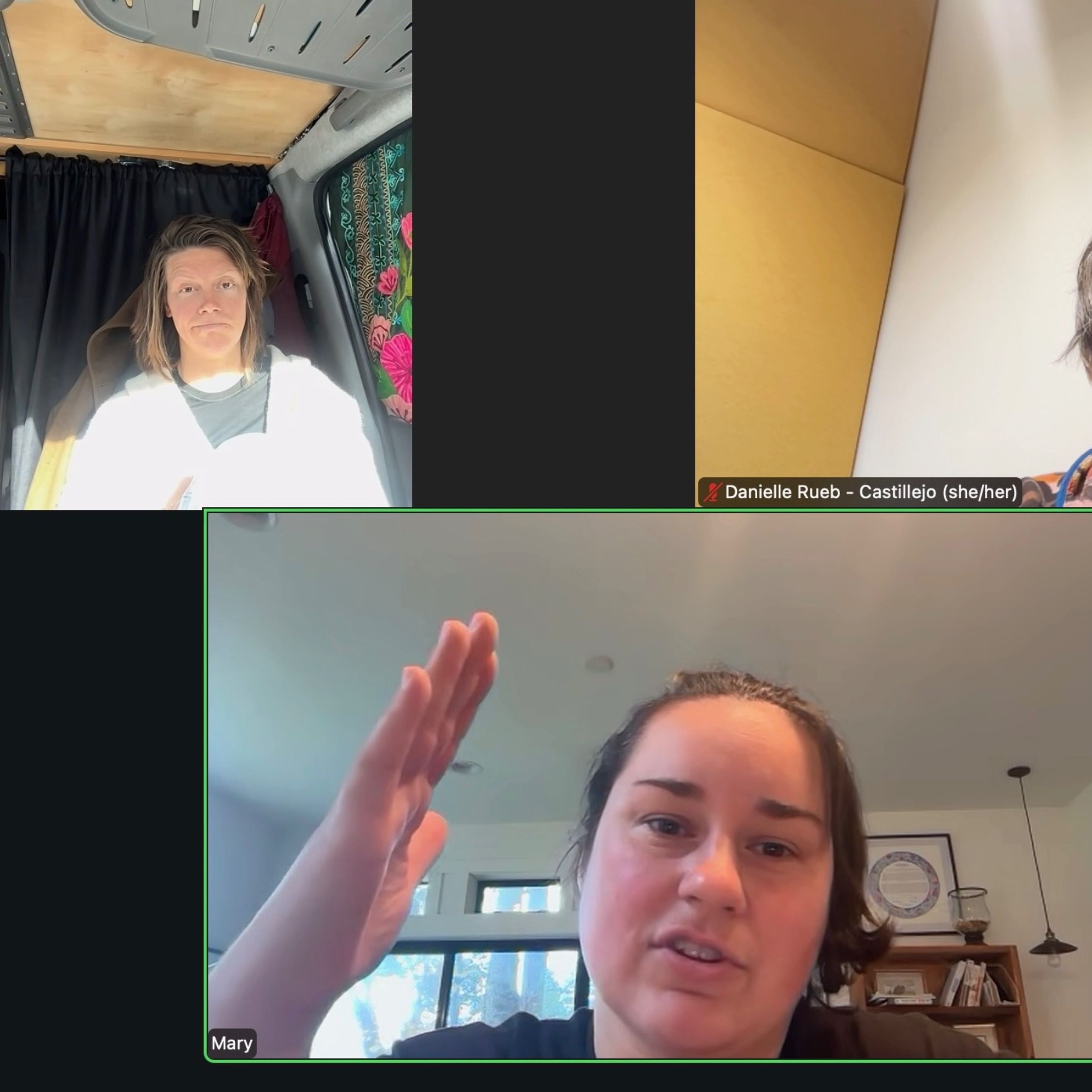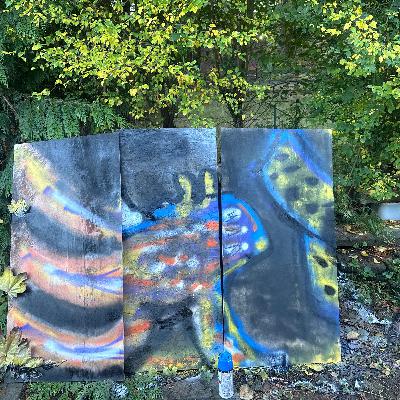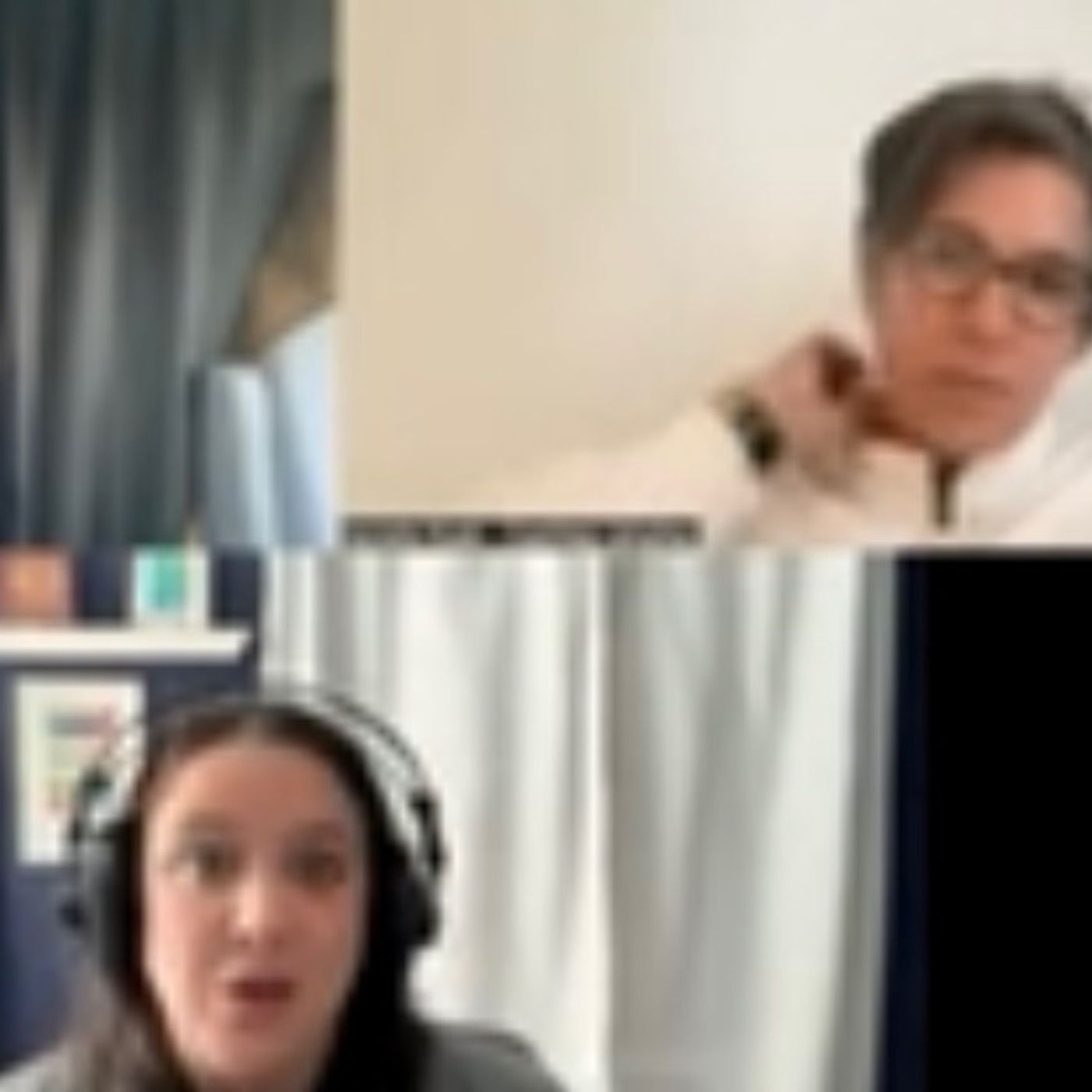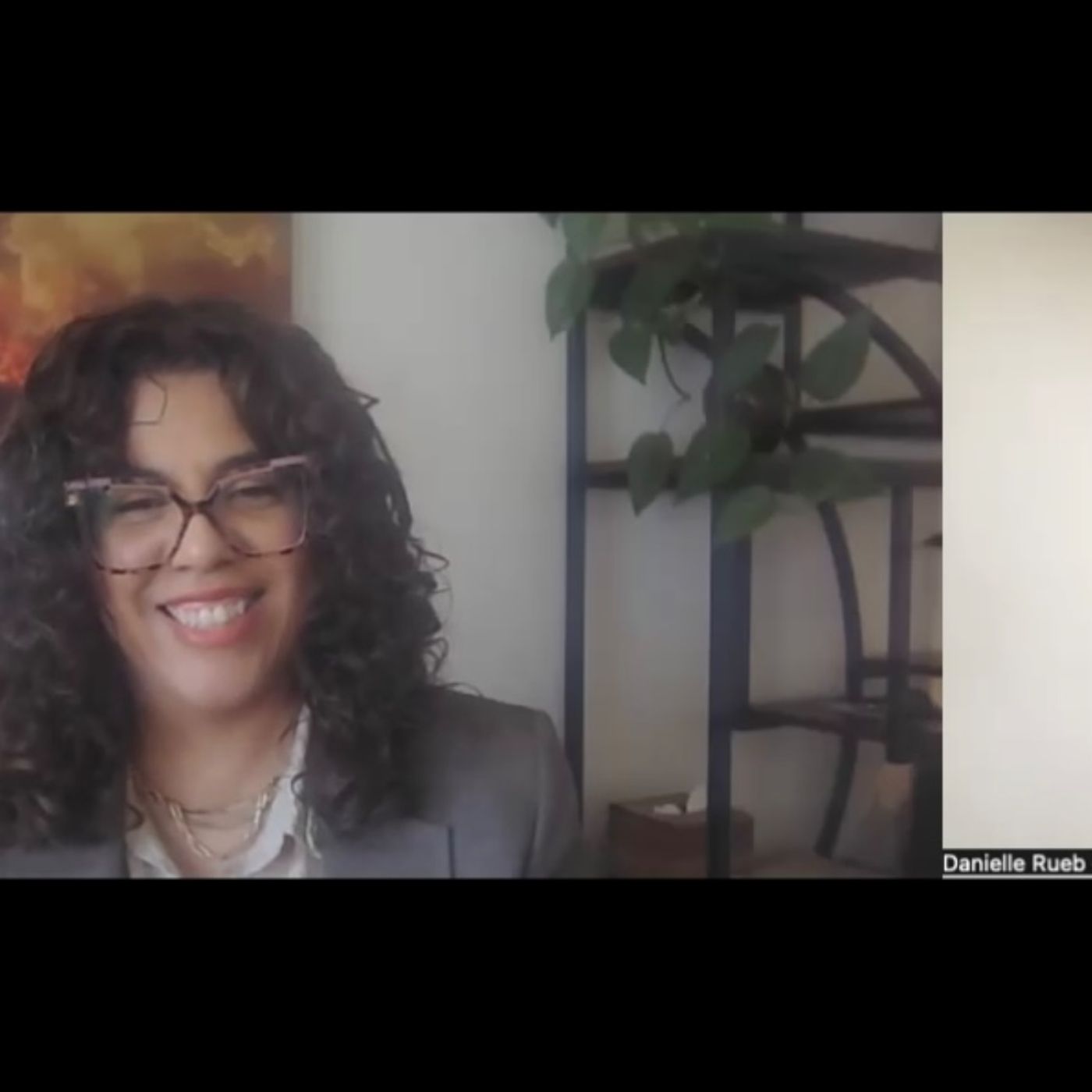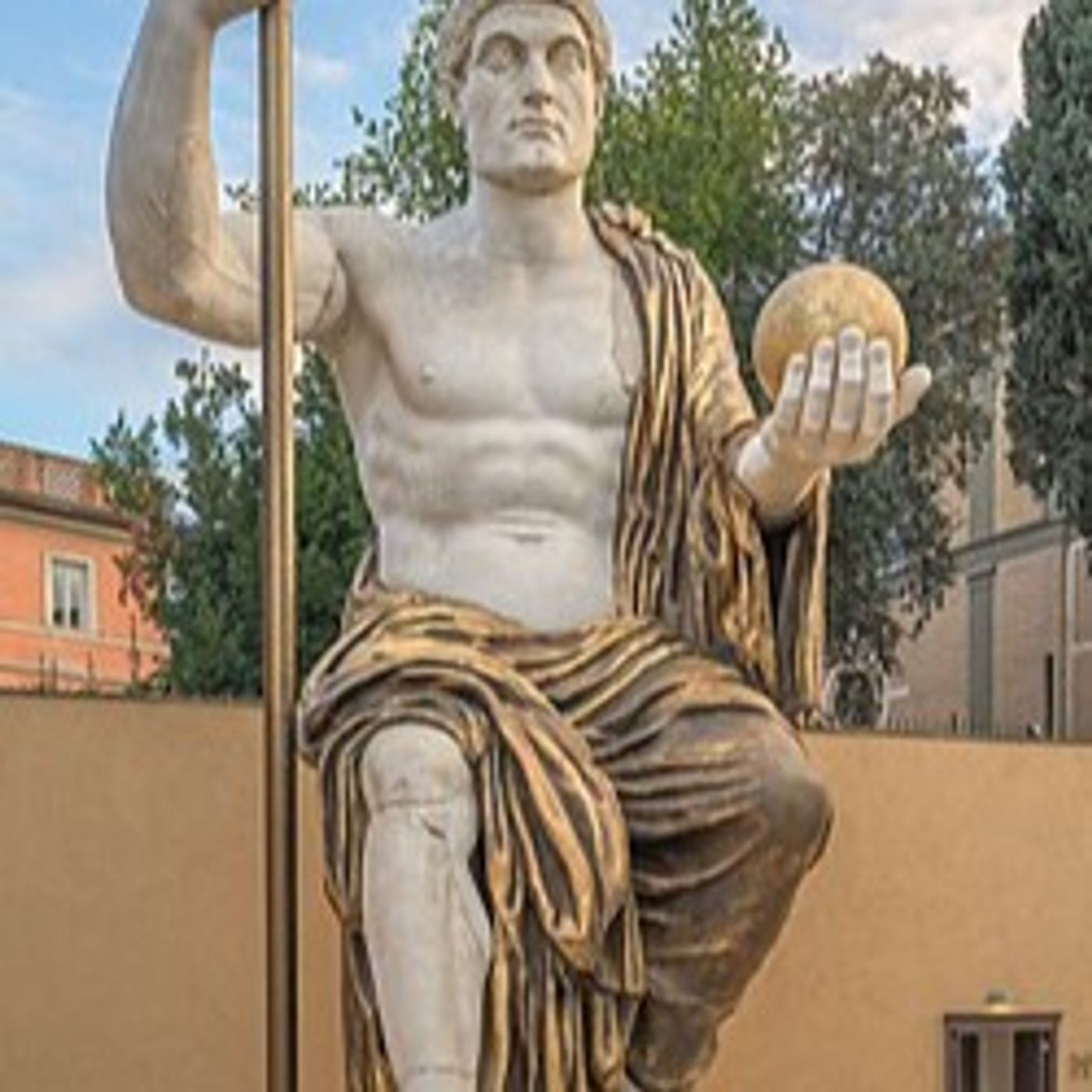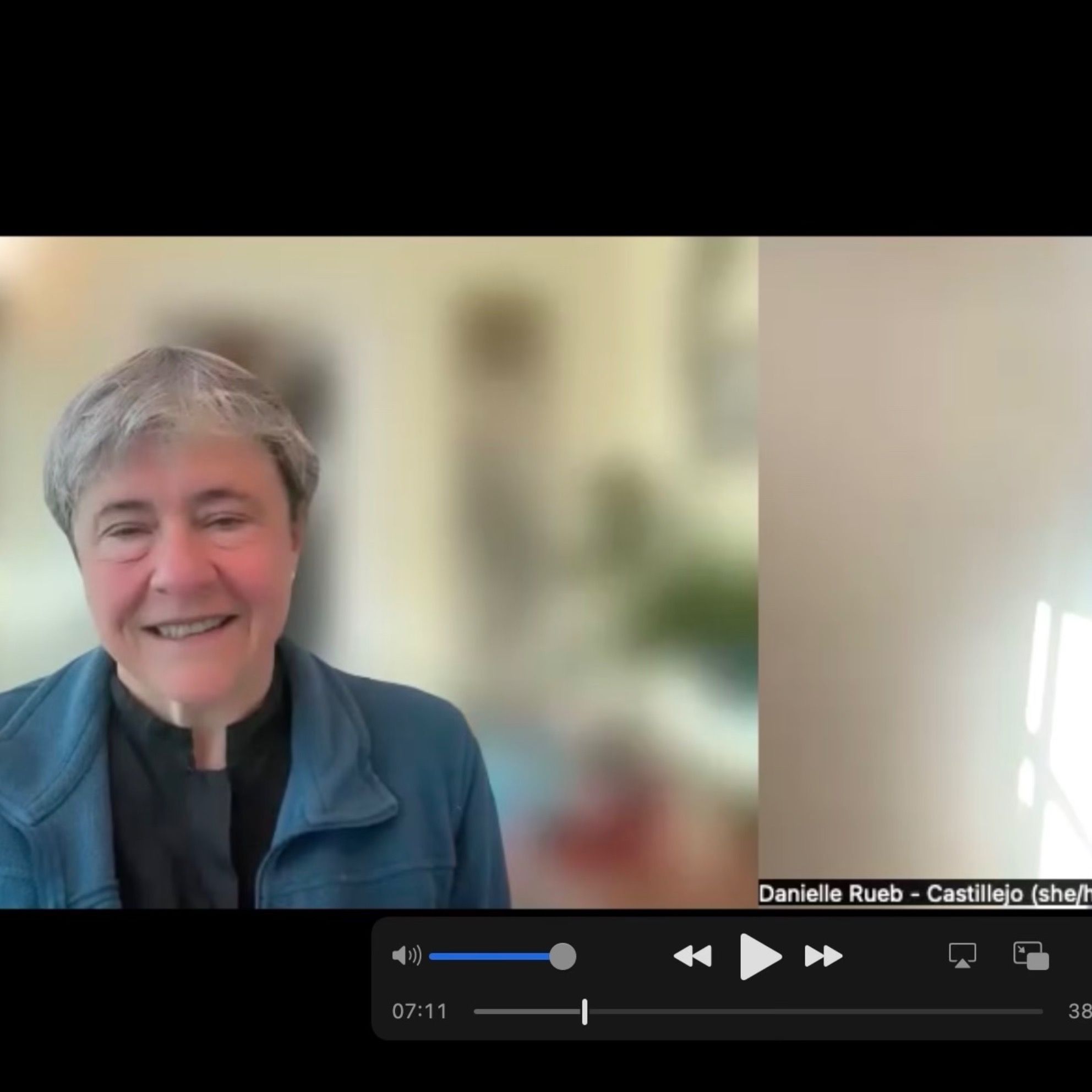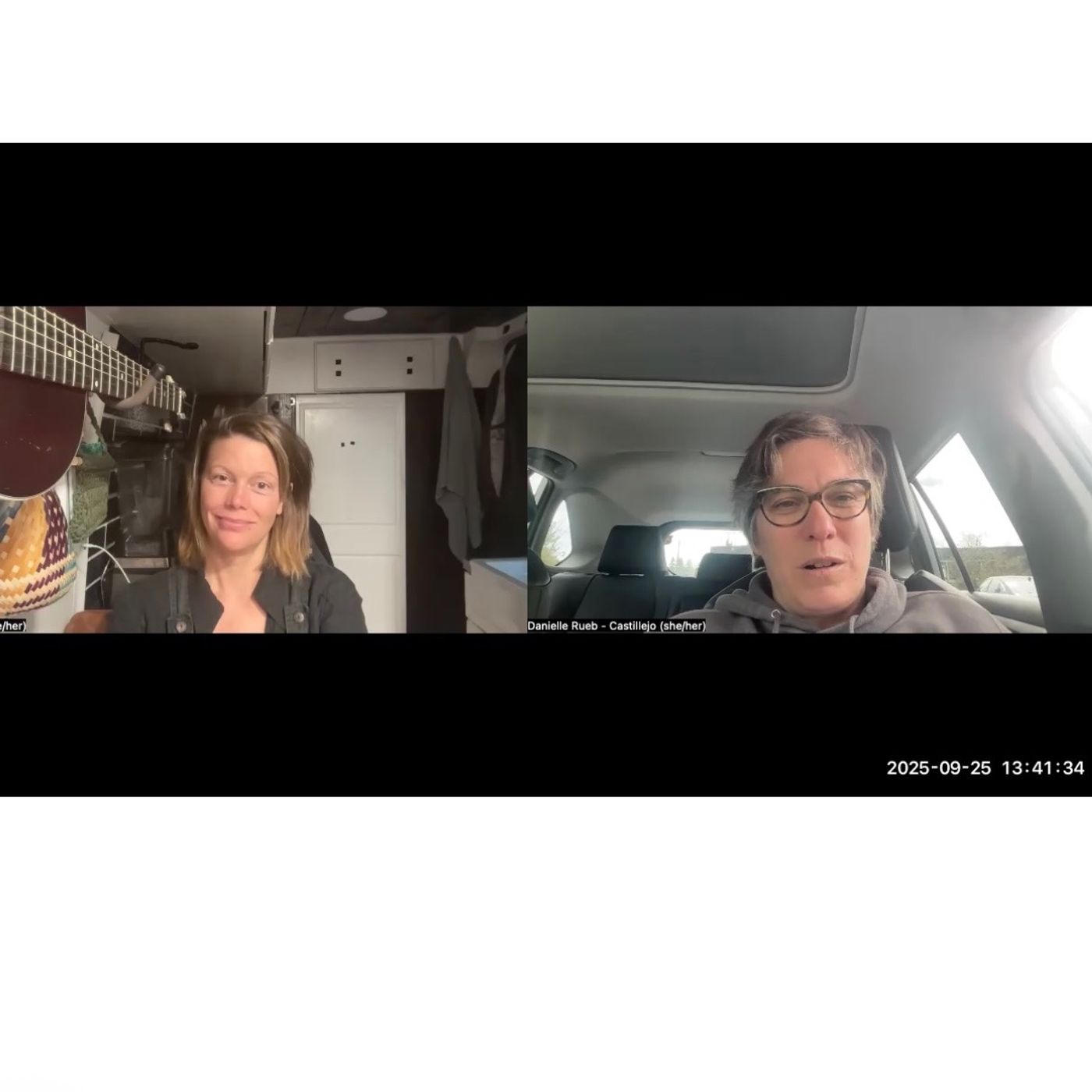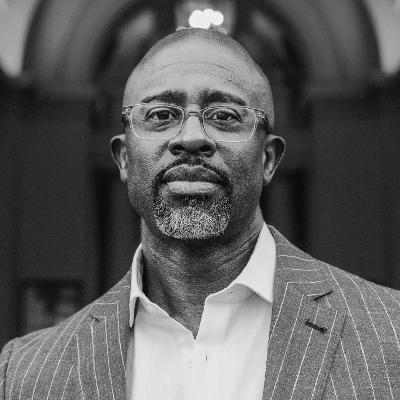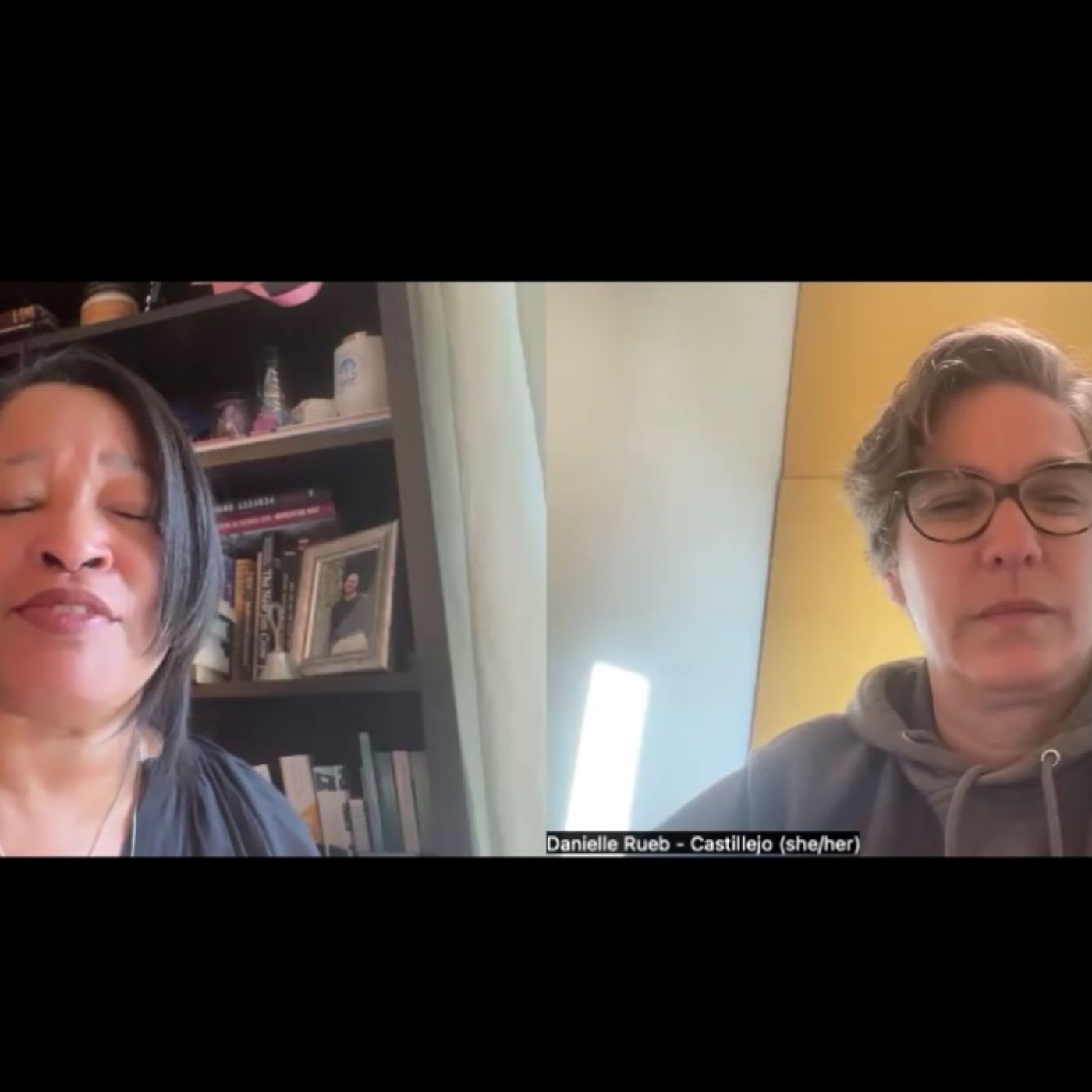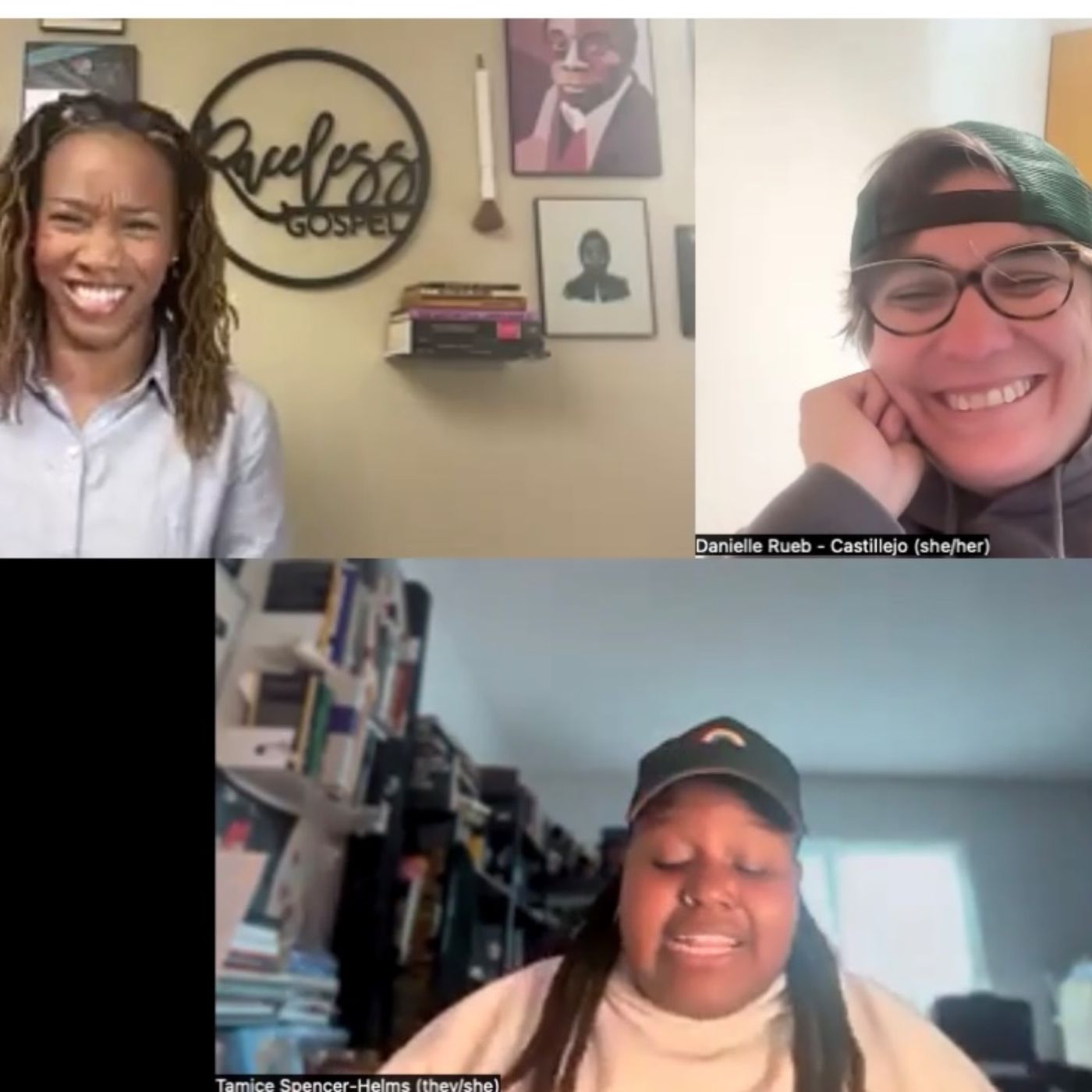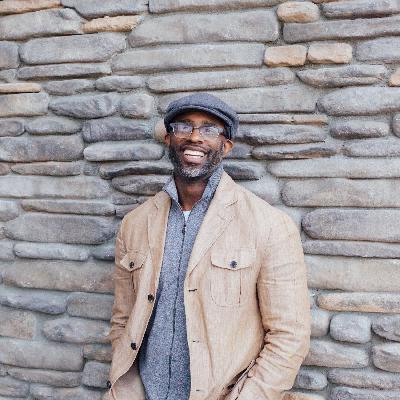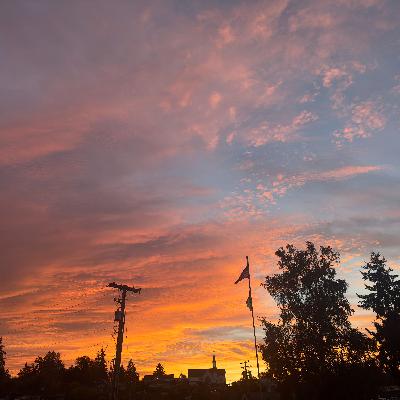Season 6, Episode 7: Jenny Mcgrath and Rebecca Walston speak about Reality and Resilience in this moment
Description
Bio: Jenny - Co-Host Podcast (er):
I am Jenny! (She/Her) MACP, LMHC
I am a Licensed Mental Health Counselor, Somatic Experiencing® Practitioner, Certified Yoga Teacher, and an Approved Supervisor in the state of Washington.
I have spent over a decade researching the ways in which the body can heal from trauma through movement and connection. I have come to see that our bodies know what they need. By approaching our body with curiosity we can begin to listen to the innate wisdom our body has to teach us. And that is where the magic happens!
I was raised within fundamentalist Christianity. I have been, and am still on my own journey of healing from religious trauma and religious sexual shame (as well as consistently engaging my entanglement with white saviorism). I am a white, straight, able-bodied, cis woman. I recognize the power and privilege this affords me socially, and I am committed to understanding my bias’ and privilege in the work that I do. I am LGBTQIA+ affirming and actively engage critical race theory and consultation to see a better way forward that honors all bodies of various sizes, races, ability, religion, gender, and sexuality.
I am immensely grateful for the teachers, healers, therapists, and friends (and of course my husband and dog!) for the healing I have been offered. I strive to pay it forward with my clients and students. Few things make me happier than seeing people live freely in their bodies from the inside out!
Rebecca A. Wheeler Walston, J.D., Master of Arts in Counseling
Email: asolidfoundationcoaching@gmail.com
Phone: +1.5104686137
Website: Rebuildingmyfoundation.com
I have been doing story work for nearly a decade. I earned a Master of Arts in Counseling from Reformed Theological Seminary and trained in story work at The Allender Center at The Seattle School of Theology and Psychology. I have served as a story facilitator and trainer at both The Allender Center and the Art of Living Counseling Center. I currently see clients for one-on-one story coaching and work as a speaker and facilitator with Hope & Anchor, an initiative of The Impact Movement, Inc., bringing the power of story work to college students.
By all accounts, I should not be the person that I am today. I should not have survived the difficulties and the struggles that I have faced. At best, I should be beaten down by life‘s struggles, perhaps bitter. I should have given in and given up long ago. But I was invited to do the good work of (re)building a solid foundation. More than once in my life, I have witnessed God send someone my way at just the right moment to help me understand my own story, and to find the strength to step away from the seemingly inevitable ending of living life in defeat. More than once I have been invited and challenged to find the resilience that lies within me to overcome the difficult moment. To trust in the goodness and the power of a kind gesture. What follows is a snapshot of a pivotal invitation to trust the kindness of another in my own story. May it invite you to receive to the pivotal invitation of kindness in your own story. Listen with me…
Danielle (00:17 ):
Welcome to the Arise podcast, and as you know, we're continuing on the intersection of where our reality meets and today it's where our reality meets our resilience. And how do we define that? A lovely conversation. It's actually just part one. I'm thinking it's going to be multiple conversations. Jenny McGrath, LMHC, and Rebecca Wheeler, Walston. Join me again, look for their bios in the notes and tag along with us. I thought we could start by talking about what do we see as resilience in this moment and what do we see, maybe like I'm saying a lot now, what do we see as the ideal of that resilience and what is actually accessible to us? Because I think there's these great quotes from philosophers and our ancestors, but we don't know all their day-to-day life. What did it look like day to day? So I'm wondering, just kind of posing that for you all, what do you think about resilience? How does it intersect with this moment and how do we kind of ground ourselves in reality?
Rebecca (01:33 ):
Rebecca? Coffee helps. Coffee definitely helps. It does. I have coffee here.
(01:42 ):
Me too. I would probably try to start with something of a working definition of the word. One of the things that I think makes this moment difficult in terms of a sense of what's real and what's not is the way that our vocabulary is being co-opted or redefined without our permission. And things are being defined in ways that are not accurate or not grounded in reality. And I think that that's part of what feels disorienting in this moment. So I would love for us to just start with a definition of the word, and I'm guessing the three of us will have different versions of that.
(02:25 ):
So if I had to start, I would say that I used to think about resilience as sort of springing back to a starting point. You started in this place and then something knocked you off of where you started. And resilience is about making it back to the place that you were before you got knocked off of your path. And my definition of that word has shifted in recent years to a sense of resilience that is more about having come through some difficulty. I don't actually bounce back to where I started. I actually adopt a new normal new starting place that has integrated the lessons learned or the strengths or the skills developed for having gone through the process of facing something difficult.
Jenny, I love that. I feel like it reminds me of a conversation you and I had many moons ago, Rebecca, around what is flourishing and kind of these maybe idealistic ideas around something that isn't actually rooted in reality. And I love that that definition of resistance feels so committed to being in reality. And I am not going to erase everything I went through to try to get back to something, but I'm actually going to, my word is compost or use what I've gone through to bring me to where I am. Now, this will not surprise either of you. I think when I think of resilience, I think somatically and how we talk about a nervous system or a body and what allows resilience. And so one of the ways that that is talked about is through heart rate variability and our ability for our heart to speed up and slow down is one of the defining factors of our body's ability to stay resilient.
(04:42 ):
Can I come to a state of rest and I think about how rest is a privilege that not all bodies have. And so when I think about resilience in that way, it makes me think about how do I actually zoom out of resilience being about an individual body and how do we form kind of more of a collective sense of resilience where we are coworking to create a world where all bodies get to return to that level of safety and rest and comfort and aren't having to stay in a mode of vigilance. And so I see resilience almost as one of the directions that I'm wanting to move and not a place that we're at yet collectively. Collectively meaning who
Jenny (05:41 ):
I say collectively, I'm hoping for a world that does not exist yet where it gets to be all bodies, human and non-human, and the ways in which we allow ecosystems to rest, we allow a night sky to rest. We allow ourselves to become more in rhythm with the activation and deactivation that I think nature teaches us of more summer and winter and day and night and these rhythms that I think we're meant to flow in. But in a productive capitalistic society where lights are never turned off and energy is only ever thought about and how do we produce more or different energy, I'm like, how do we just stop producing energy and just take a nap? I'm really inspired by the nat ministry of just like rest actually is a really important part of resistance. And so I have these lofty ideals of what collective means while being aware that we are coming to that collective from very different places in our unresolved historical relational field that we're in.
I would say there's a lot I'd love about that, all of that. And I, dear use of the word lofty, I feel that word in this moment that causes me to consider the things that feel like they're out of reach. I think the one thing that I would probably add to what you said is I think you used the phrase like returning to a state of rest when you were talking about heart rate and body. And if we're talking about an individual ability to catch my breath and slow it down, I can track with you through th


